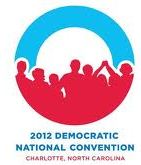 The battle for the soul of the Democratic Party, at least in the area of public education policy, was on full display yesterday at two panel discussions organized by Democrats for Education Reform. (Full disclosure: I am DFER’s Florida coordinator.)
The battle for the soul of the Democratic Party, at least in the area of public education policy, was on full display yesterday at two panel discussions organized by Democrats for Education Reform. (Full disclosure: I am DFER’s Florida coordinator.)
The first panel consisted of Democratic state legislators from Colorado, Indiana, New Jersey, North Carolina and Ohio discussing their legislative efforts to improve public education by changing teacher evaluation, tenure and compensation systems. These initiatives, generally opposed by teachers unions, are designed to make the current factory model of public education more effective and efficient by giving management more control over personnel decisions.
The second panel included the presidents of the two national teachers unions (Dennis Van Roekel of the National Education Association and Randi Weingarten of the American Federation of Teachers), two educational entrepreneurs with strong technology backgrounds (John Katzman from 2tor and Noodle.org, and Joel Rose from New Classrooms Innovation Partners), and Joe Reardon, the mayor of Kansas City, Kansas. They discussed what a post-factory model of public education might look like. There was broad agreement among these diverse panelists that customized learning is the future of public education. They all emphasized the importance of innovation and entrepreneurship, and the economic and moral imperative of more effectively overcoming the achievement gap related to family income.
The fault lines within this second panel, and in the Democratic Party as a whole, appeared when the moderator, Jonathan Schorr from the NewSchools Venture Fund, asked about the role private providers should play in public education. After acknowledging that private, for-profit companies provide buildings, desks, buses, textbooks, computers, pencils and electricity for district schools, both Weingarten and Van Roekel opposed allowing nongovernment employees to teach in public education, arguing that the essence of public education would be undermined if nongovernment personnel received public funds to teach children.
Katzman and Rose, the entrepreneurs/innovators on the panel, seemed agnostic about who employs teachers. They cared about the freedom to innovative and customize. Katzman in particular stressed that learning providers needed to be agile. Weingartner responded that teachers unions could provide this agility through collective bargaining contracts if only management would agree. She asserted that school districts were the impediment to flexibility and innovation, not teachers unions.
The teachers unions’ current business model is tied to teachers being public employees, so I understand why that’s a must-have for them. No business voluntarily gives up market share, but asserting that only public employees can further the mission of public education defies logic and common sense.
For example, the teachers union in Pinellas County, Fla. runs an after school tutoring program for public school students through a corporate subsidiary. (Full disclosure: I am a member of this corporation’s board of directors.) Our tutoring business competes with the Pinellas school district, which runs a similar program. We only hire teachers union members as tutors, but according to Weingartner and Van Roekel’s rationale, our tutors are undermining public education because they are not government employees while tutoring after school. That’s nonsense, and it’s not a position that is politically sustainable.
The most promising aspect of this second panel is that it occurred. DFER successfully brought together the warring education factions within the Democratic Party to have a thoughtful and civil dialogue about how best to improve public education, and that’s an achievement they can and should build on. Hopefully DFER, the teachers unions, and other Democrats interested in helping public education fulfill the promises of excellence and equity will continue this conversation.
Once the teachers unions expand their business model to include all teachers, and not just teachers working for school districts, then a broad consensus for how best to improve public education will be achievable within the Democratic Party, and between Democrats and Republicans. That day is coming.


